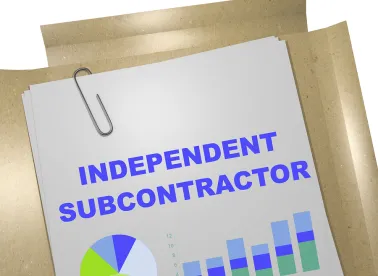The Kentucky Supreme Court doubled down on its wrong analysis of the “occurrence” issue in Martin/Elias Properties LLC v. Acuity, 544 S.W.3d 639 (2018). The new decision refuses to find the existence of an “occurrence” where defective basement work performed by a subcontractor caused property damage “throughout the entire property, making it structurally unsound.” The decision applies an extreme “fortuity” analysis that is not based on the actual CGL policy terms to reach this conclusion. The decision holds that “the legal analysis used to determine whether something constitutes an accident for issues of CGL coverage is the doctrine of fortuity, which encompasses both intent and control.” The decision then holds that to determine whether an event constitutes an accident Kentucky courts must analyze (1) whether the insured intended the event to occur; and 2) whether the event was a “chance event” beyond the control of the insured. “If the insured did not intend the event or result to occur, and the event or result that occurred was a ‘chance event’ beyond the control of the insured, then CGL coverage covering accidents will apply to the benefit of the insured.” Using this analysis, the court determined there was no “occurrence” because the subcontractor “had both intent and full control when conducting his work, which ultimately failed to support the existing structure. So it cannot be said that the resulting damage from [the subcontractor’s] poor workmanship was a fortuitous event. For an event to be fortuitous, and therefore an accident, it must be ‘beyond the power of any human being to bring … to pass, [or is] … within the control of third persons….’” The dissent points out that under the majority analysis “it is hard to see how an accident could ever occur,” and argues that the majority “goes too far today in making it significantly harder for injured parties to recover.” The dissent also points out that coverage would be excluded under a policy exclusion. Fortunately, numerous other courts do not apply the reasoning used by the Kentucky Supreme Court in addressing this issue. Instead, most courts today find that there can be an accidental “occurrence” if the policyholder’s defective work (or that of its subcontractor) causes property damage to something other than the defective work itself.
Kentucky Supreme Court Doubles Down on Wrong Analysis of “Occurrence”
Friday, June 15, 2018
Current Public Notices
Published: 28 August, 2025
Published: 25 August, 2025
Published: 25 August, 2025
Published: 25 August, 2025
Published: 25 August, 2025
Published: 22 August, 2025
Published: 20 August, 2025
Published: 20 August, 2025
Published: 18 August, 2025
Published: 18 August, 2025
Published: 14 August, 2025
Published: 12 August, 2025
Published: 11 August, 2025
Published: 8 August, 2025
Published: 18 July, 2025




 />i
/>i
